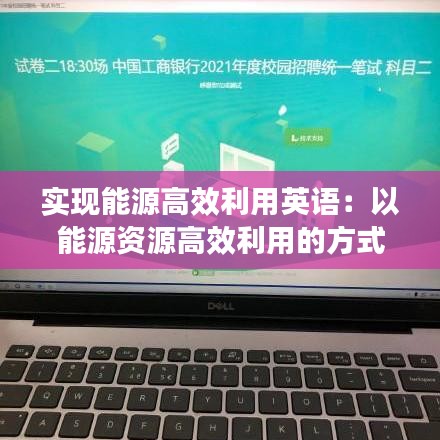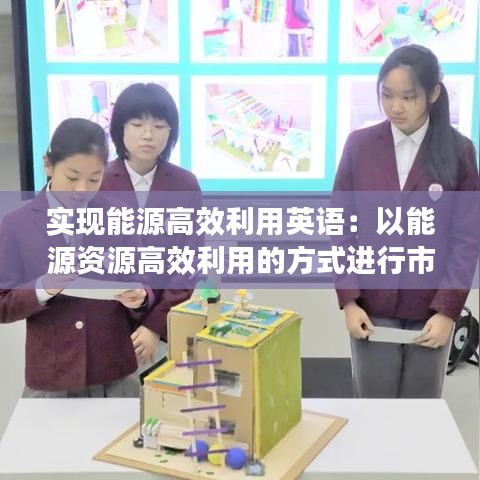<!DOCTYPE html>
Implementing Energy EfficiencyIntroduction to Energy Efficiency
In today's rapidly evolving world, the demand for energy is at an all-time high. However, the conventional methods of energy production and consumption are increasingly being challenged by the growing concerns over climate change and environmental degradation. This has led to a renewed focus on energy efficiency, which aims to maximize the output of energy while minimizing waste. Implementing energy efficiency is not only crucial for environmental sustainability but also for economic viability and societal welfare.
Understanding Energy Efficiency
Energy efficiency refers to the ability to use less energy for the same amount of work. It is a concept that spans across various sectors, including residential, commercial, industrial, and transportation. The primary goal of energy efficiency is to reduce energy consumption, thereby lowering greenhouse gas emissions and preserving natural resources. This can be achieved through a combination of technological advancements, behavioral changes, and policy interventions.
Technological Innovations for Energy Efficiency
One of the most effective ways to achieve energy efficiency is through technological innovations. Advances in energy-efficient appliances, lighting, and building design have significantly reduced the energy footprint of homes and businesses. For instance, the adoption of LED lighting has led to a dramatic decrease in electricity consumption for lighting purposes. Similarly, the development of smart grids and renewable energy sources like solar, wind, and geothermal power has paved the way for a more sustainable and efficient energy system.
Behavioral Changes for Energy Efficiency
While technological advancements play a crucial role in energy efficiency, behavioral changes are equally important. Individuals and organizations can make significant strides towards energy efficiency by adopting simple, everyday practices. This includes turning off lights and appliances when not in use, unplugging chargers, using energy-efficient settings on electronic devices, and opting for energy-efficient transportation options. Education and awareness campaigns can also help in promoting these behavioral changes.
Policy Interventions for Energy Efficiency
Governments and regulatory bodies have a crucial role to play in implementing energy efficiency measures. Policies such as energy efficiency standards for appliances, building codes, and incentives for renewable energy adoption can significantly boost the adoption of energy-efficient practices. Moreover, carbon pricing and cap-and-trade systems can encourage industries to reduce their energy consumption and invest in cleaner technologies.
The Economic Benefits of Energy Efficiency
Beyond environmental benefits, energy efficiency offers substantial economic advantages. By reducing energy consumption, businesses and households can cut down on energy costs, leading to increased profitability and financial savings. Furthermore, investing in energy-efficient technologies can stimulate job creation in the renewable energy and energy services sectors. Over the long term, energy efficiency can contribute to economic stability and growth.
Case Studies: Successful Energy Efficiency Initiatives
There are numerous case studies that demonstrate the success of energy efficiency initiatives around the world. For instance, the "Cool Roofs" project in India, which involved painting roofs of buildings with reflective materials, resulted in significant reductions in energy consumption for cooling purposes. Similarly, the "Green Building" movement in the United States has led to the construction of energy-efficient buildings that are both environmentally friendly and economically viable.
Challenges and Solutions in Achieving Energy Efficiency
Despite the numerous benefits of energy efficiency, there are several challenges that need to be addressed. These include high initial costs for energy-efficient technologies, lack of awareness and understanding among consumers, and the need for strong policy frameworks. Solutions to these challenges involve providing financial incentives for energy-efficient investments, enhancing public awareness campaigns, and developing robust regulatory frameworks that promote energy efficiency.
Conclusion
The journey towards energy efficiency is a complex one that requires a multifaceted approach involving technological innovation, behavioral change, and policy interventions. By working together, individuals, businesses, and governments can make significant progress in reducing energy consumption and mitigating the effects of climate change. The future of energy efficiency lies in continuous research, education, and collaboration, ensuring a sustainable and prosperous future for all.
转载请注明来自河南省豫芊香食品有限公司,本文标题:《实现能源高效利用英语:以能源资源高效利用的方式进行市场 》












 豫ICP备2020036209号-1
豫ICP备2020036209号-1
还没有评论,来说两句吧...